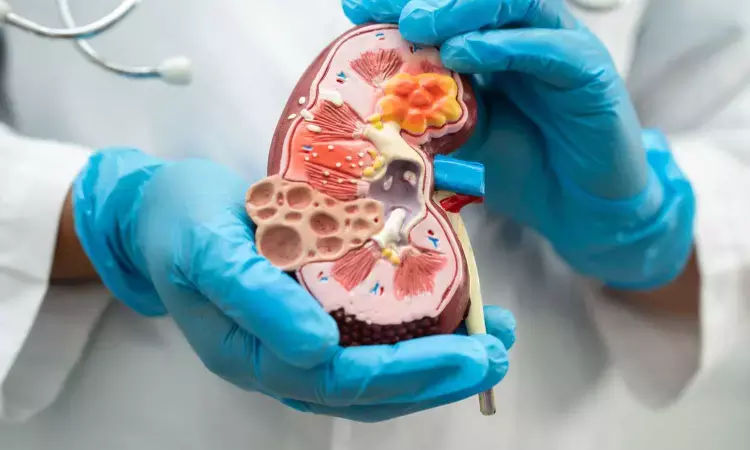- Home
- Medical news & Guidelines
- Anesthesiology
- Cardiology and CTVS
- Critical Care
- Dentistry
- Dermatology
- Diabetes and Endocrinology
- ENT
- Gastroenterology
- Medicine
- Nephrology
- Neurology
- Obstretics-Gynaecology
- Oncology
- Ophthalmology
- Orthopaedics
- Pediatrics-Neonatology
- Psychiatry
- Pulmonology
- Radiology
- Surgery
- Urology
- Laboratory Medicine
- Diet
- Nursing
- Paramedical
- Physiotherapy
- Health news
- Fact Check
- Bone Health Fact Check
- Brain Health Fact Check
- Cancer Related Fact Check
- Child Care Fact Check
- Dental and oral health fact check
- Diabetes and metabolic health fact check
- Diet and Nutrition Fact Check
- Eye and ENT Care Fact Check
- Fitness fact check
- Gut health fact check
- Heart health fact check
- Kidney health fact check
- Medical education fact check
- Men's health fact check
- Respiratory fact check
- Skin and hair care fact check
- Vaccine and Immunization fact check
- Women's health fact check
- AYUSH
- State News
- Andaman and Nicobar Islands
- Andhra Pradesh
- Arunachal Pradesh
- Assam
- Bihar
- Chandigarh
- Chattisgarh
- Dadra and Nagar Haveli
- Daman and Diu
- Delhi
- Goa
- Gujarat
- Haryana
- Himachal Pradesh
- Jammu & Kashmir
- Jharkhand
- Karnataka
- Kerala
- Ladakh
- Lakshadweep
- Madhya Pradesh
- Maharashtra
- Manipur
- Meghalaya
- Mizoram
- Nagaland
- Odisha
- Puducherry
- Punjab
- Rajasthan
- Sikkim
- Tamil Nadu
- Telangana
- Tripura
- Uttar Pradesh
- Uttrakhand
- West Bengal
- Medical Education
- Industry
Intestinal flora closely associated with diabetes after kidney transplantation suggests study

Intestinal flora closely associated with diabetes after kidney transplantation suggests a study published in the BMC Nephrology.
Post-transplant diabetes mellitus (PTDM) is a common complication following renal transplantation, and its incidence has been gradually increasing in recent years, posing a significant public health challenge. Managing PTDM is complex, as studies suggest that it involves changes in the microbial flora across multiple organs.
Kidney transplantation is the optimal treatment for end-stage nephropathy. It involves transplanting a healthy kidney into a patient whose kidneys have failed, significantly enhancing the recipient's quality of life. Thanks to advancements in surgical technology, medical care, the introduction of Calcineurin Inhibitors (CNIs), and improved immunosuppressive protocols, the survival rates for kidney grafts have significantly increased over recent decades. However, cardiovascular diseases remain a leading cause of morbidity and mortality among kidney transplant recipients. A major contributor to these adverse outcomes is post-transplant diabetes mellitus (PTDM). Research indicates that PTDM increases the risk of myocardial infarction by 60%, and it is also linked to higher incidences of cerebrovascular accidents and arterial diseases in the aorta or lower limbs following kidney transplantation.
The human microbiota comprises a diverse array of microorganisms, including bacteria, archaea, fungi, viruses, and protozoa. These organisms inhabit various parts of the human body such as the skin, respiratory, digestive, and genitourinary tracts. They play a crucial role in health by aiding digestion, regulating the immune system, protecting against pathogens, and synthesizing essential vitamins like vitamin B12, vitamin K, and riboflavin. The intestine, the most heavily colonized part, hosts a bacterial load similar in magnitude to the number of the body's cells, about 3.9 × 10^13.
Recent research highlights the critical role of gut flora metabolism in the development of diabetes among post-renal transplant patients. This paper reviews the alterations in gut flora observed in PTDM patients and explores how gut flora influences PTDM.
In conclusion, there is a significant relationship between intestinal flora and post-transplant diabetes mellitus, with interactions that may contribute to the disease's development. Dysbiosis of the gut flora is implicated in this process, potentially due to the symptomatic response triggered by abnormal levels of short-chain fatty acids (SCFAs) and enteric-derived uremic toxins.
Reference:
Chen, Lb., Chen, Q., Chao, S. et al. Influence of gut flora on diabetes management after kidney transplantation. BMC Nephrol 25, 468 (2024). https://doi.org/10.1186/s12882-024-03899-y
Dr. Shravani Dali has completed her BDS from Pravara institute of medical sciences, loni. Following which she extensively worked in the healthcare sector for 2+ years. She has been actively involved in writing blogs in field of health and wellness. Currently she is pursuing her Masters of public health-health administration from Tata institute of social sciences. She can be contacted at editorial@medicaldialogues.in.
Dr Kamal Kant Kohli-MBBS, DTCD- a chest specialist with more than 30 years of practice and a flair for writing clinical articles, Dr Kamal Kant Kohli joined Medical Dialogues as a Chief Editor of Medical News. Besides writing articles, as an editor, he proofreads and verifies all the medical content published on Medical Dialogues including those coming from journals, studies,medical conferences,guidelines etc. Email: drkohli@medicaldialogues.in. Contact no. 011-43720751


